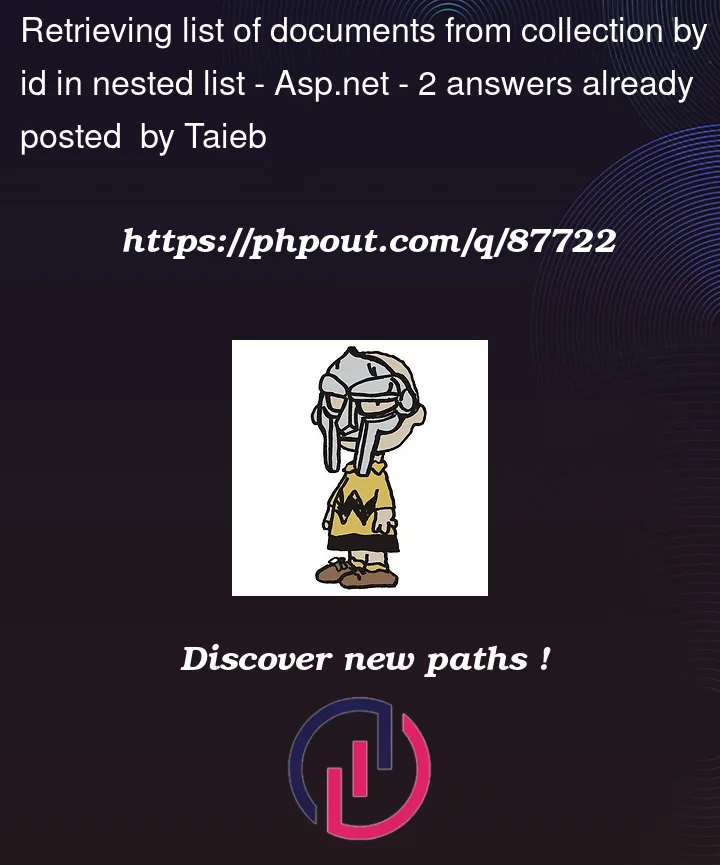I have documents like this:
[
// 1
{
"_id": ObjectId("573f3944a75c951d4d6aa65e"),
"Source": "IGN",
"Family": [
{
"Countries": [
{
"uid": 17,
"name": "Japan",
}
]
}
]
},
// 2
{
"_id": ObjectId("573f3d41a75c951d4d6aa65f"),
"Source": "VG",
"Family": [
{
"Countries": [
{
"uid": 17,
"name": "USA"
}
]
}
]
},
// 3
{
"_id": ObjectId("573f4367a75c951d4d6aa660"),
"Source": "NRK",
"Family": [
{
"Countries": [
{
"uid": 17,
"name": "Germany"
}
]
}
]
},
// 4
{
"_id": ObjectId("573f4571a75c951d4d6aa661"),
"Source": "VG",
"Family": [
{
"Countries": [
{
"uid": 10,
"name": "France"
}
]
}
]
},
// 5
{
"_id": ObjectId("573f468da75c951d4d6aa662"),
"Source": "IGN",
"Family": [
{
"Countries": [
{
"uid": 14,
"name": "England"
}
]
}
]
}
]
I want to return only the documents with source equals ‘Countries.uid’ equal 17
so I have in the end :
[
{
"_id": ObjectId("573f3944a75c951d4d6aa65e"),
"Source": "IGN",
"Family": [
{
"Countries": [
{
"uid": 17,
"name": "Japan",
}
]
}
]
},
{
"_id": ObjectId("573f3d41a75c951d4d6aa65f"),
"Source": "VG",
"Family": [
{
"Countries": [
{
"uid": 17,
"name": "USA"
}
]
}
]
},
{
"_id": ObjectId("573f4367a75c951d4d6aa660"),
"Source": "NRK",
"Family": [
{
"Countries": [
{
"uid": 17,
"name": "Germany"
}
]
}
]
}
]
How can I do this with the official C# MongoDB driver?
Tried this :
public List<Example> getLinkedCountry(string porduitId)
{
var filter = Builders<Example>.Filter.AnyIn("Family.Countries.uid", porduitId);
var cursor = await _certificats.FindAsync(filter);
var docs = cursor.ToList();
return docs;
}
Unfortunately, I think my filter is wrong.
Is there a way to find all the documents by accessing the nested list by id and retrieving it?




2
Answers
Solution 1
Use
ElemMatchinstead ofAnyIn.Solution 2
If you are unconfident with MongoDB .Net Driver syntax, you can convert the query as
BsonDocumentvia MongoDB Compass (Export to language feature).Just to expand on @Yong Shun ‘s answer,
if you just want to return the list of nested documents and not all of it, you have a few options.
Using project
Using the aggregate pipeline